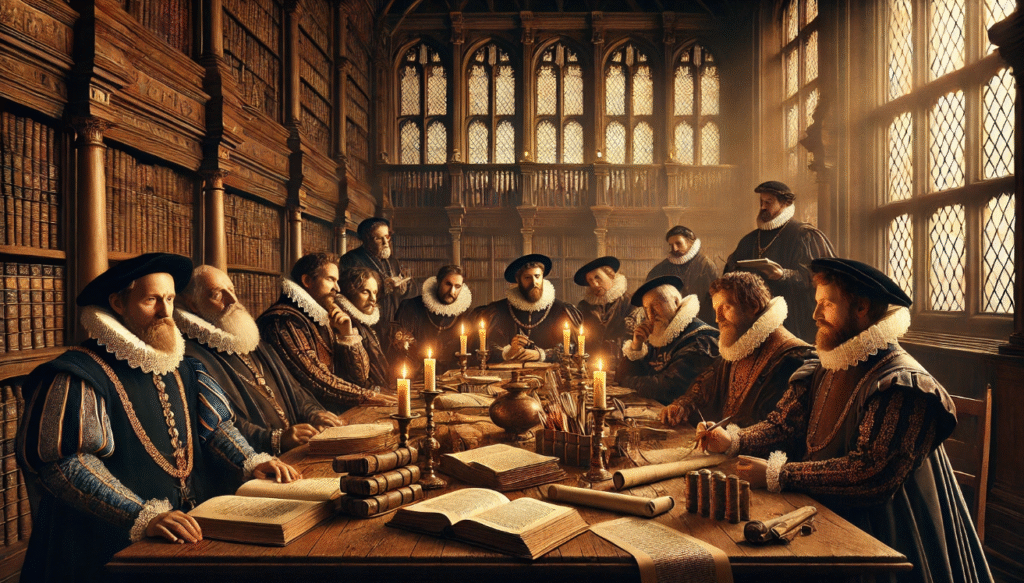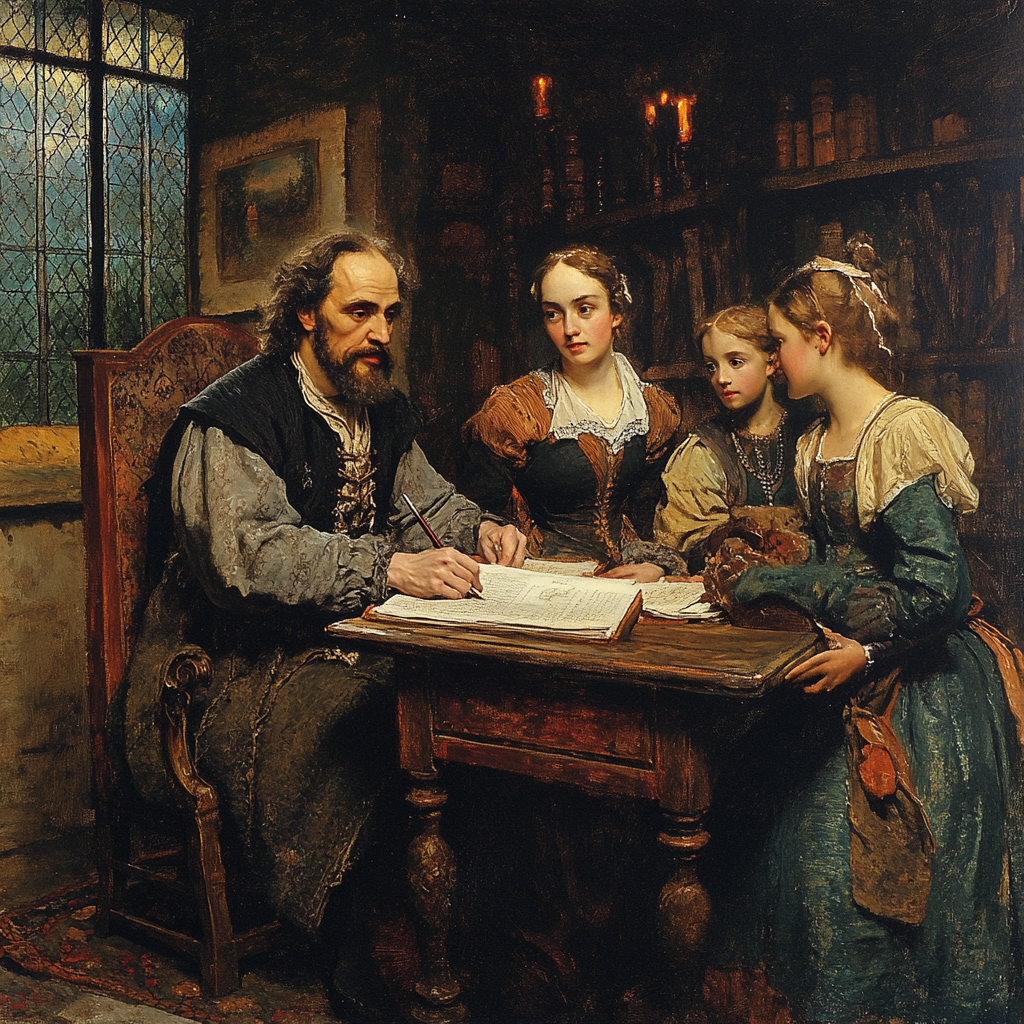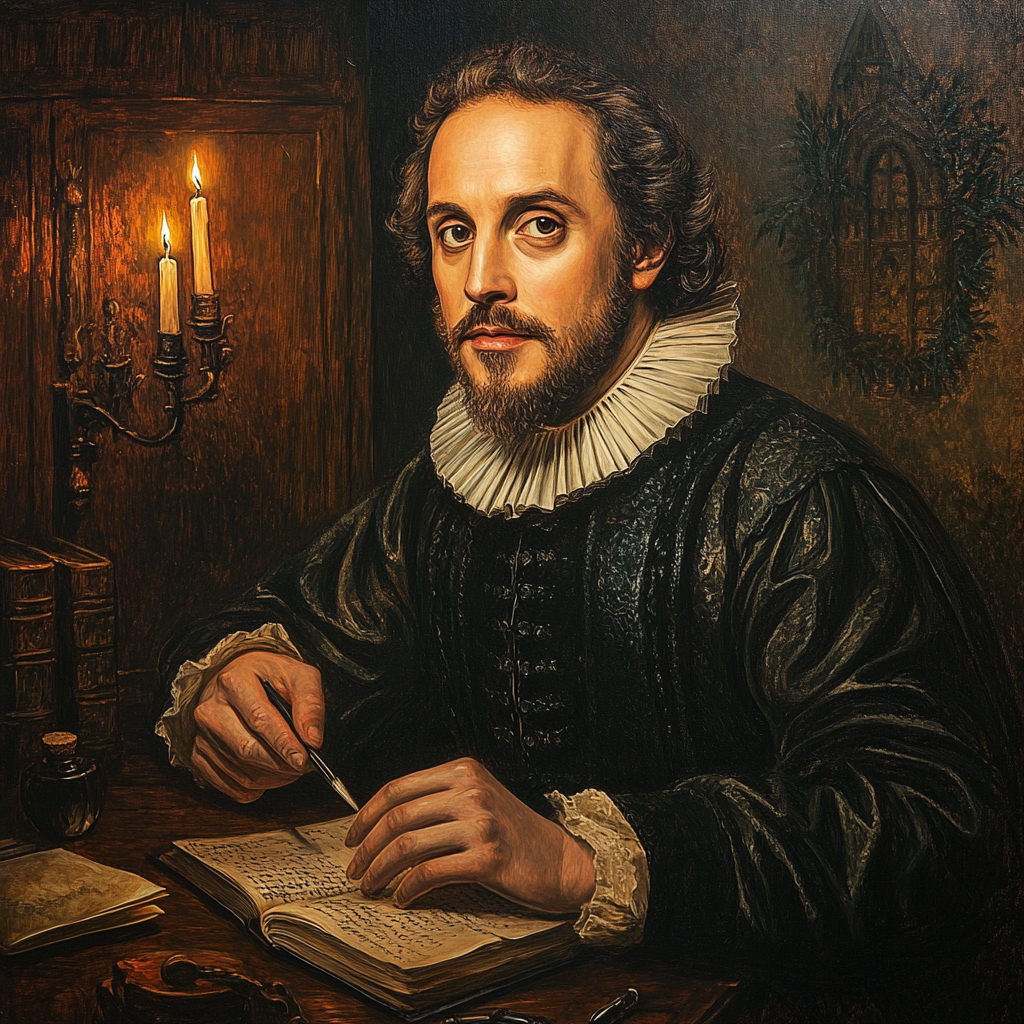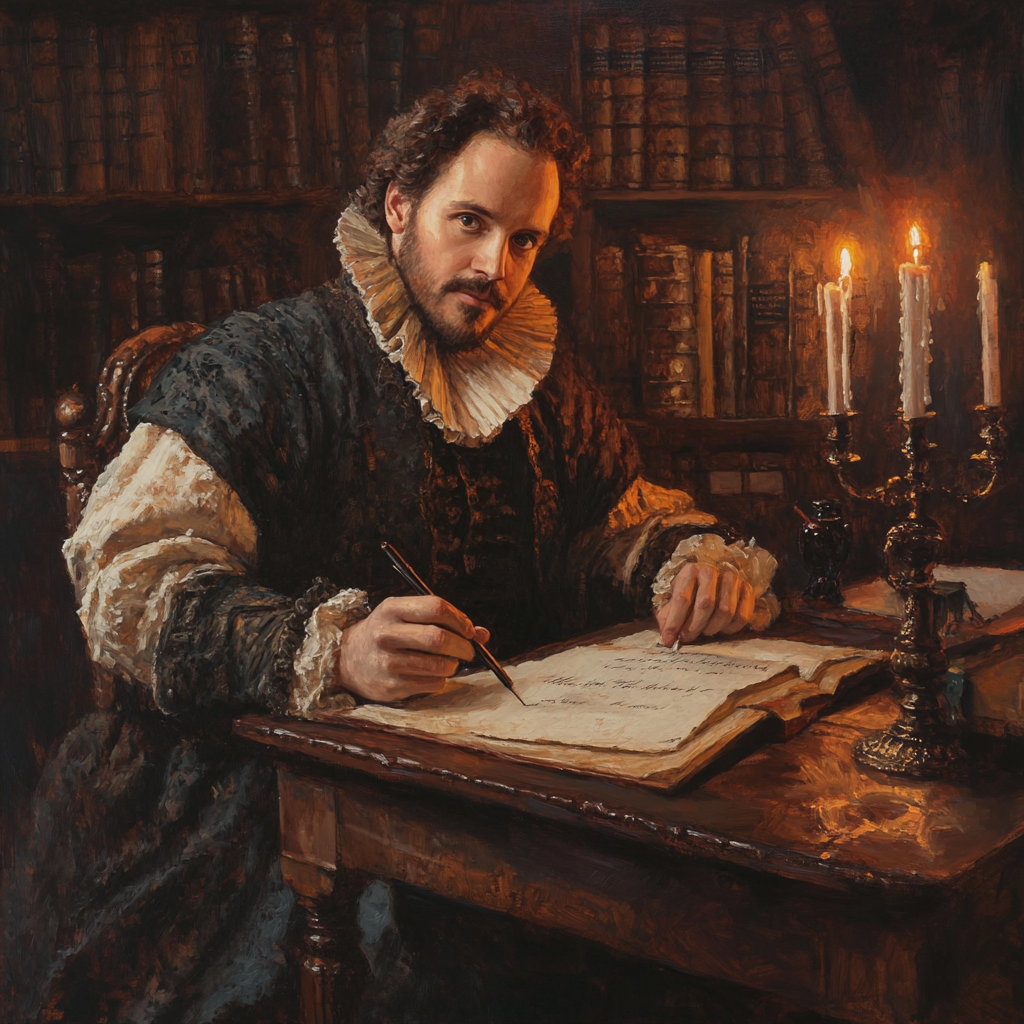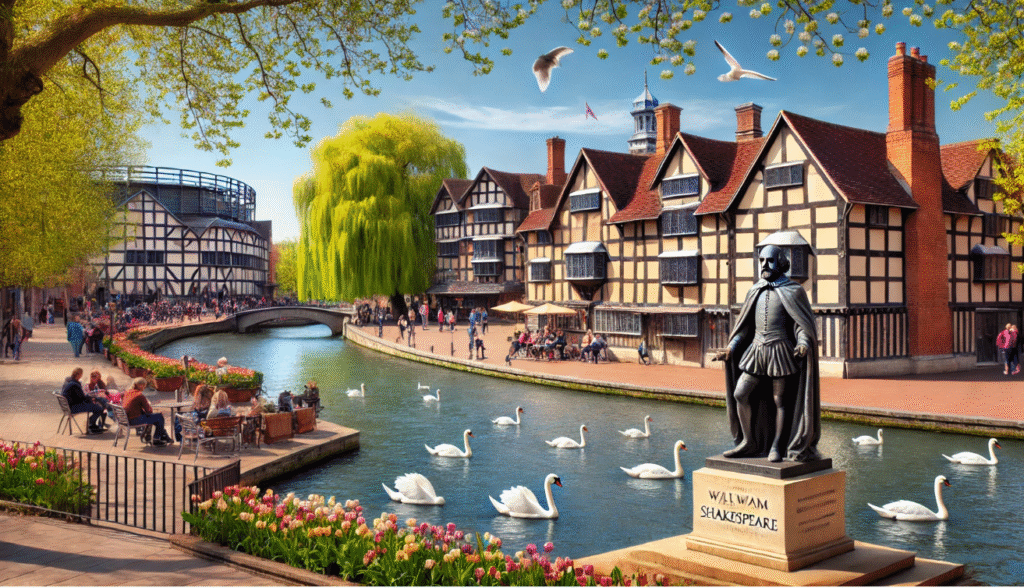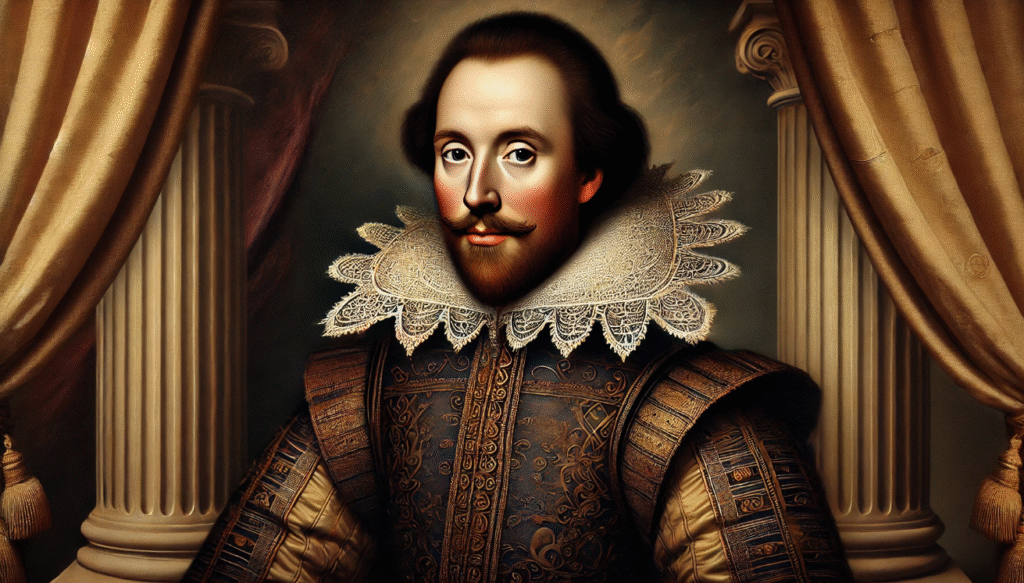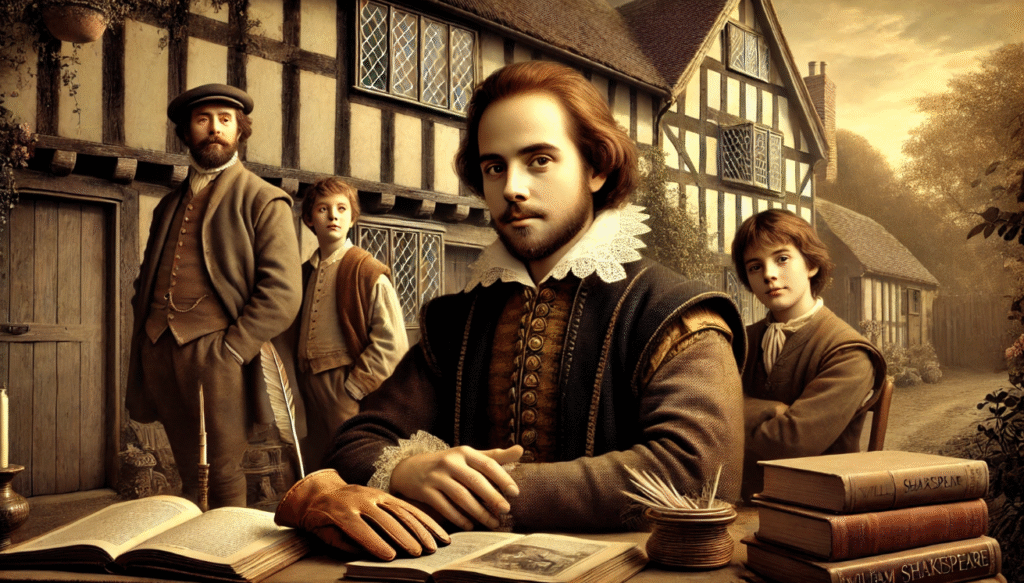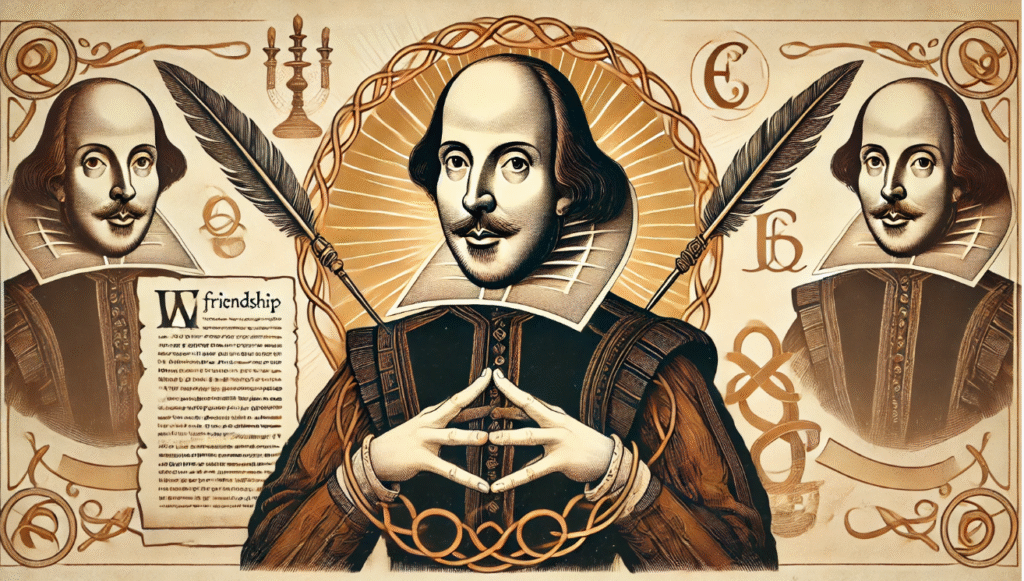 Shakespeare’s role in the English Renaissance also known as the Early Modern period, occurred roughly between the 14th and 17th centuries. It was a time of significant cultural, artistic, and intellectual growth in England, marked by a renewed interest in classical learning and a focus on humanism. Humanism, which emphasized the value of human potential and achievement, became a central theme in the literature and art of the period. One of the central figures of the English Renaissance was William Shakespeare, whose works had a profound impact on literature and culture. Shakespeare’s plays and poetry reflected the humanist ideals of the time, exploring the complexities of human nature and the struggle for power and love.
Shakespeare’s role in the English Renaissance also known as the Early Modern period, occurred roughly between the 14th and 17th centuries. It was a time of significant cultural, artistic, and intellectual growth in England, marked by a renewed interest in classical learning and a focus on humanism. Humanism, which emphasized the value of human potential and achievement, became a central theme in the literature and art of the period. One of the central figures of the English Renaissance was William Shakespeare, whose works had a profound impact on literature and culture. Shakespeare’s plays and poetry reflected the humanist ideals of the time, exploring the complexities of human nature and the struggle for power and love.
The English Renaissance: A Cultural Reawakening
The English Renaissance was a cultural and artistic movement that took place in England during the 16th and early 17th centuries. It was characterized by a revival of classical learning, with a renewed interest in Greek and Roman literature, philosophy, and art. One of the key features of the English Renaissance was the emphasis on individualism, as artists, writers, and thinkers began to focus on the unique experiences and perspectives of the individual. This led to a flourishing of literature, including the works of playwrights like William Shakespeare and Christopher Marlowe, as well as the development of new forms of poetry and prose.
During the Tudor and Elizabethan reigns in England, there were significant developments in art, literature, and exploration. This period saw the flourishing of renowned playwrights such as William Shakespeare and Christopher Marlowe, as well as the construction of iconic landmarks like the Globe Theatre. Additionally, the reigns of Tudor monarchs such as Henry VIII and Elizabeth I were marked by the expansion of English influence through exploration and colonization, most notably with the establishment of the English East India Company. This era also witnessed the Protestant Reformation and the subsequent establishment of the Church of England, which had a profound impact on English society and culture.
Shakespeare’s Role as a Literary Innovator
Transforming Drama

Complex characters with psychological depth, such as Hamlet and Macbeth, are often central to the success of literary works. These characters are typically multi-dimensional, possessing a range of emotions, motivations, and internal conflicts that drive their actions and decisions. They often grapple with moral dilemmas, existential questions, and inner turmoil, making them compelling and relatable to audiences. Their psychological complexity adds depth and richness to the storytelling, offering a deeper exploration of human nature and the human experience. As a result, these characters continue to captivate and resonate with readers and audiences across generations.
The fusion of comedy and tragedy in works like The Tempest and A Midsummer Night’s Dream is a testament to the versatility and complexity of Shakespeare’s writing. By seamlessly blending elements of humor and sorrow, these plays offer a rich and multifaceted experience for audiences. Additionally, Shakespeare’s revolutionary narrative structures and dialogue in his plays have helped to shape the course of dramatic storytelling for centuries to come, influencing countless playwrights and artists. His innovative approach to theatrical composition continues to be celebrated and studied to this day.
Mastery of Language
The contribution to the English language through the creation of new words and expressions has enriched and expanded its vocabulary. This constant evolution reflects the dynamic nature of the language and its ability to adapt to the changing world around us. Additionally, the use of iambic pentameter and blank verse has elevated dramatic and poetic art forms, allowing for a deeper exploration of themes and emotions. These literary techniques have been instrumental in shaping the way we communicate and express ourselves through the written word.
Universal Themes

Human emotions, morality, and social dynamics have been explored throughout history in various forms of literature, art, and philosophy. These are fundamental aspects of the human experience that continue to captivate and intrigue us. The themes of power, love, betrayal, and ambition are universal and timeless, resonating with people from all cultures and time periods. They provide a rich tapestry for storytelling and reflection on the complexities of human nature. Through the exploration of these themes, we are able to gain deeper insight into ourselves and the world around us.
William Shakespeare’s impact on literature and drama has been unparalleled compared to his contemporaries like Christopher Marlowe and Ben Jonson. His ability to capture the human experience and create timeless characters and stories has ensured his enduring legacy. His works continue to be studied, performed, and adapted in modern education, theatre, and popular culture, solidifying his influence in the centuries since his death.
Cultural Impact Beyond Literature
Influence on Theatre

The establishment of theatre as a popular and respected art form can be attributed to the influence of iconic venues such as The Globe Theatre. As one of the most famous theatres in history, The Globe played a crucial role in shaping public entertainment and culture. It provided a platform for playwrights like William Shakespeare to showcase their works and captivate audiences with timeless stories and performances. The Globe’s impact on theatre as an art form is undeniable, as it helped to elevate the status of live performance and established a standard for excellence in storytelling and production. Its legacy continues to inspire and influence contemporary theatre, cementing its enduring significance in the world of performing arts.
Reflection of Renaissance Ideals
Humanism, individualism, and the exploration of the human condition are essential components of contemporary societal and political issues. Incorporation of these values into our daily lives can lead to a more compassionate and inclusive society. By embracing humanism, we prioritize the well-being and dignity of all individuals, recognizing the inherent value of each person. This can lead to greater empathy and understanding in our interactions with others. Similarly, the celebration of individualism encourages us to embrace our unique identities and perspectives, fostering a culture of acceptance and diversity. By recognizing and valuing the contributions of each person, we can create a more inclusive and equitable society. Exploring the human condition allows us to better understand the complexities of human experience and to empathize with others.
Shakespeare’s Legacy in the English Renaissance
William Shakespeare was widely recognized during his lifetime as a talented playwright and poet, and his influence has only grown in the centuries since his death. His works continue to be studied, performed, and adapted in modern education, theatre, and popular culture. In comparison to his contemporaries like Christopher Marlowe and Ben Jonson, Shakespeare’s impact on literature and drama has been unparalleled. While Marlowe and Jonson were also influential playwrights of the time, Shakespeare’s ability to capture the human experience and create timeless characters and stories has ensured his enduring legacy.
Challenges and Controversies
During his era, William Shakespeare faced criticism and debates surrounding the authorship of his works and their originality. Many scholars and critics questioned whether he was the true author of the plays and sonnets attributed to him, and some argued that his work was not entirely original but borrowed from other sources. However, Shakespeare overcame these criticisms through the enduring popularity and influence of his works. His plays and sonnets have stood the test of time and continue to be studied, performed, and celebrated around the world. Despite the debates surrounding authorship and originality, Shakespeare’s legacy as one of the greatest writers in history remains unquestioned.

Shakespeare’s works are a prime example of how Renaissance ideals were adapted for a broader audience. During the Renaissance, there was a renewed interest in humanism, individualism, and the exploration of the human experience. Shakespeare’s plays captured these ideals by delving into the complexities of human emotions, relationships, and societal issues. His use of universal themes such as love, jealousy, ambition, and power resonated with people from all walks of life, making his works accessible to a wide audience. Additionally, Shakespeare’s use of language and rich imagery allowed his plays to transcend social and cultural barriers, appealing to both the educated elite and the common people.

